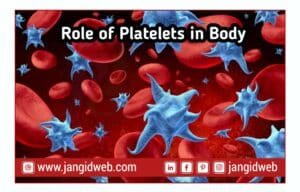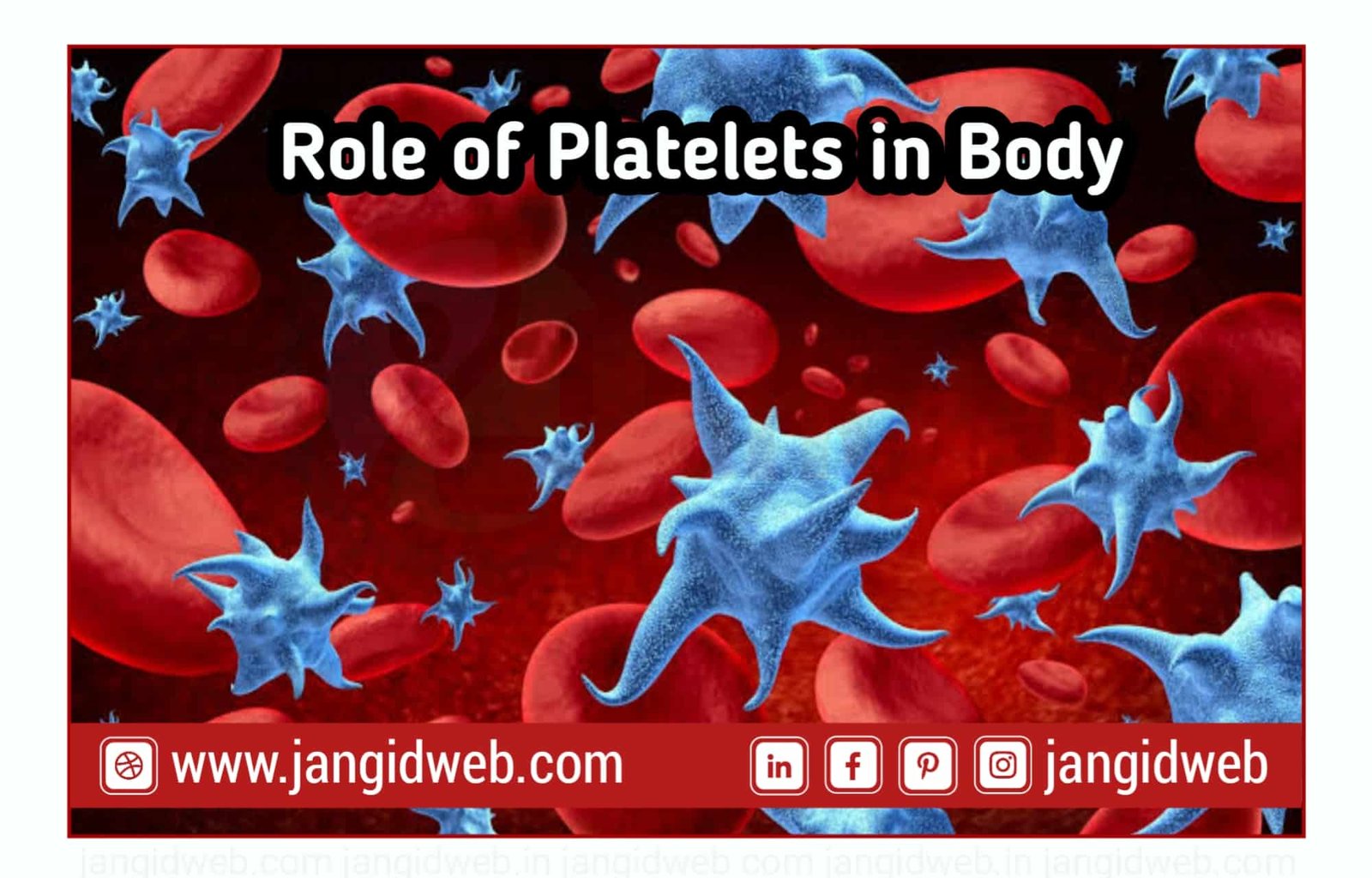Role of platelets in the body
A healthy person has 5 to 6 liters of blood in the body. In addition to fluid, red and white blood cells, blood also contains many other things, one of which is also platelets. They make up a major part of our blood.
Their size ranges from 0.002 micrometers to 0.004 micrometers. When viewed under a microscope, it appears as an oval shape. The number of platelets in a cubic milliliter of blood of a healthy person ranges from 1.5 lakh to four lakh.
The main function of platelets is to stop bleeding in the body. Platelets combine with a fluid called collagen to form a temporary wall there and prevent further damage to the blood vessel.
Platelets are very small particles of cells present in the bone marrow. Due to the thrombopoietin hormone, it breaks down and gets mixed in the blood. In 8 to 10 days, they get transmitted by themselves and also get destroyed. The function of thrombopoietin in the body is to maintain the normal number of platelets.
Event-increment both not correct
The condition of excessive number of platelets in the body is called thrombocytosis. These are of two types. When platelets start to increase due to the presence of abnormal cells in the bone marrow, it is called primary thrombocytosis.
On the other hand, when the number of platelets increases due to any disease such as anemia, cancer, inflammation or due to any other type of infection, then it is called secondary thrombocytosis. Having excess platelets in the body poses many serious dangers to the body.
This causes blood to clot, which increases the risk of heart attack, kidney failure, and paralysis. When the number of platelets in the body decreases, that condition is called thrombocytopenia.
If their number is less than 30 thousand, then the possibility of bleeding in the body increases. This blood starts coming out from the nose, ears, stool etc. If this secretion continues inside, then the possibility of failure of various organs of the body also increases.
The number of blood platelets decreases even with certain drugs, genetic diseases, certain cancers, chemotherapy treatment, excessive alcohol consumption and certain types of fever such as dengue, malaria and chikungunya.
According to doctors, when the number of platelets is less than 10 thousand, then they need to be transfused.
- How to prepare for An Exam
- Albert Einstein Biography, Education & Some Amazing Facts
- What is stress and how to relieve stress?
- What is vastu shastra, vastu science, vastu architecture?
Why do platelets decrease in dengue?
The female Aedes mosquito does not bite the muscles and targets the blood vessels, which causes the virus to spread rapidly in the blood. As the infection progresses in the blood, water starts separating from the blood and due to the reduced number of platelets present in the form of small particles in the blood, the blood is not able to clot.
The lifecycle of platelets is only 7 to 8 days as compared to RBCs and plasma, so the virus is the first to affect platelets. If there is a deficiency of iron or hemoglobin in the blood, then the chance of platelets being reduced increases up to 80 percent, so with the change of season, green vegetables, gooseberry, chikoo, cashew, broccoli and vitamin K should be included in the diet. Apart from this, things containing vitamin C and calcium also prevent the body’s immunity from weakening.
Papaya leaf juice is also beneficial
Ayurveda considers medicines like Kashaya Rasa-predominant substances like Giloy, Sudarshan Churna and papaya leaves to be beneficial in increasing platelets.
Often during dengue, malaria fever, the patient’s immunity starts decreasing, which is advised to consume these things to increase it.
Due to the deficiency of Rasa, the first of the seven metals of our body, the number of platelets starts decreasing. In such a situation, the patient should take more and more fluids. Consumption of any kind of liquids like goat’s milk and coconut water is good. This supplies fluid to the body.
Immunity increases, but they do not directly contribute to increasing platelets. Goat’s milk is easily digested, so it is also recommended to take it.
Take medicine like this
- Take two pinches of Giloy extract with a spoonful of honey twice a day or soak Giloy’s stick in water overnight and drink its filtered water in the morning.
- Take Sudarshan Churna twice a day with half a teaspoon of water.
- If there is a shortage of water and the immunity is low, give the juice of papaya leaves to the patient to drink.
Don’t be afraid to donate platelets
As dengue cases increase, the demand for platelets increases. However, there is more fighting about platelets because people have incomplete information in this regard. Generally people do not refrain from giving blood, but go back in the name of giving platelets.
In the case of platelet transfusion, platelets are separated from the blood of a healthy person through a machine and the blood is put back into the body of a healthy person. The immunosuppression machines present in hospitals today are not only advanced in terms of technology, but this procedure is also completely safe.
But after passing the blood through the machine, some people are afraid of going back to the body, which is not right. Two methods are adopted for this..
Whole blood or random donor:
In this, whole blood of many patients is taken, in which platelets are separated from the blood and stored. One unit of blood taken in this way gives 5000 platelets.
Single donor plates:
It is also called jumbo pack. In this, not taking whole blood from the donor, only platelets are taken from the blood, while the rest of the blood goes back to the body. The work of collecting platelets through Apheresis machine is being done in 15 major hospitals of Delhi.

Take care of them
- Between 24 and 48 hours, platelets are regenerated in the blood.
- Platelets do not require mixing of blood, although people with O positive blood group cannot donate platelets.
- Vitamin K and calcium help in the rapid formation of platelets in the body.
- If a lack of platelets in the blood causes bleeding, an excess of platelets can lead to thrombocytosis, which makes the blood thick.
